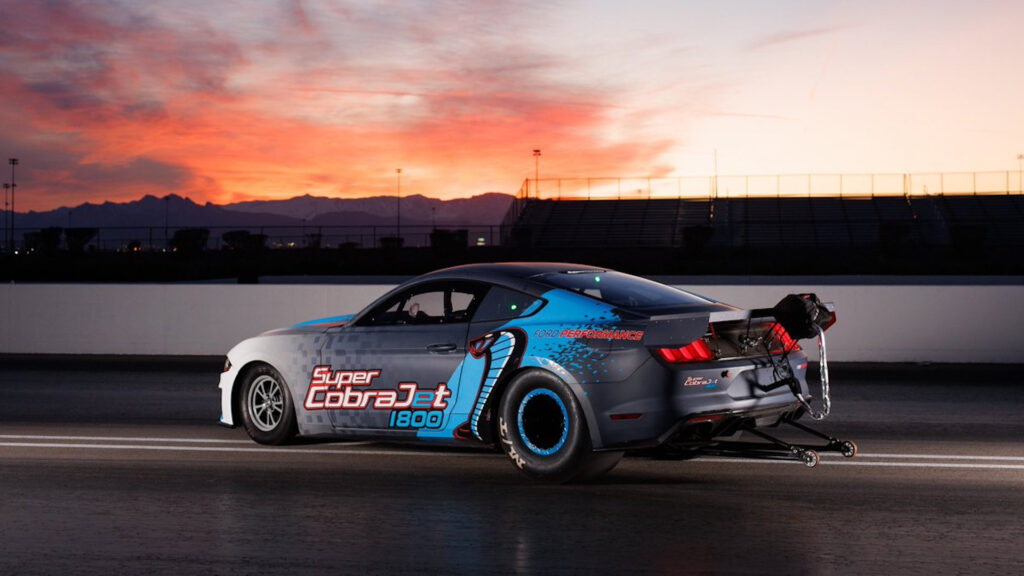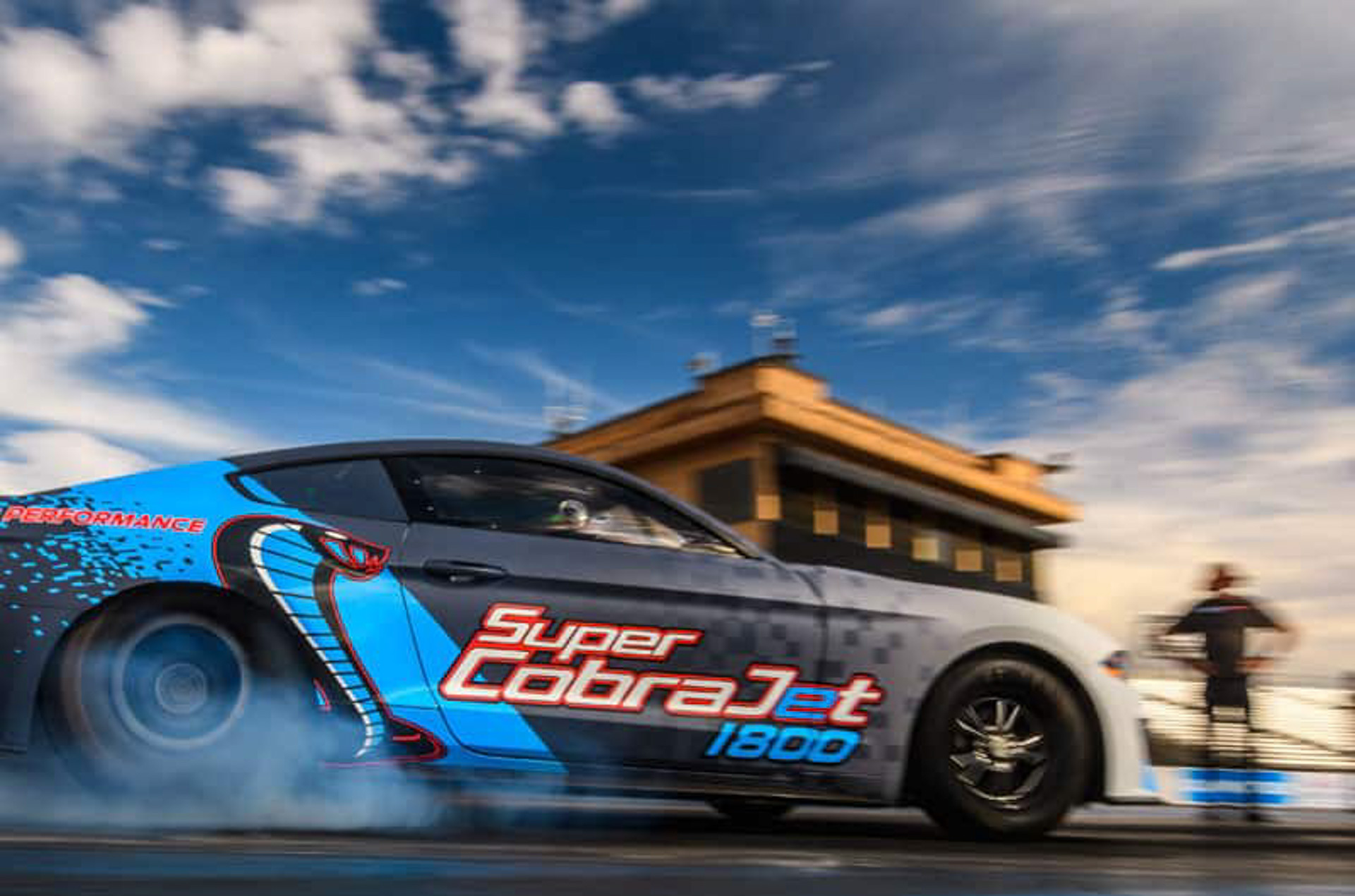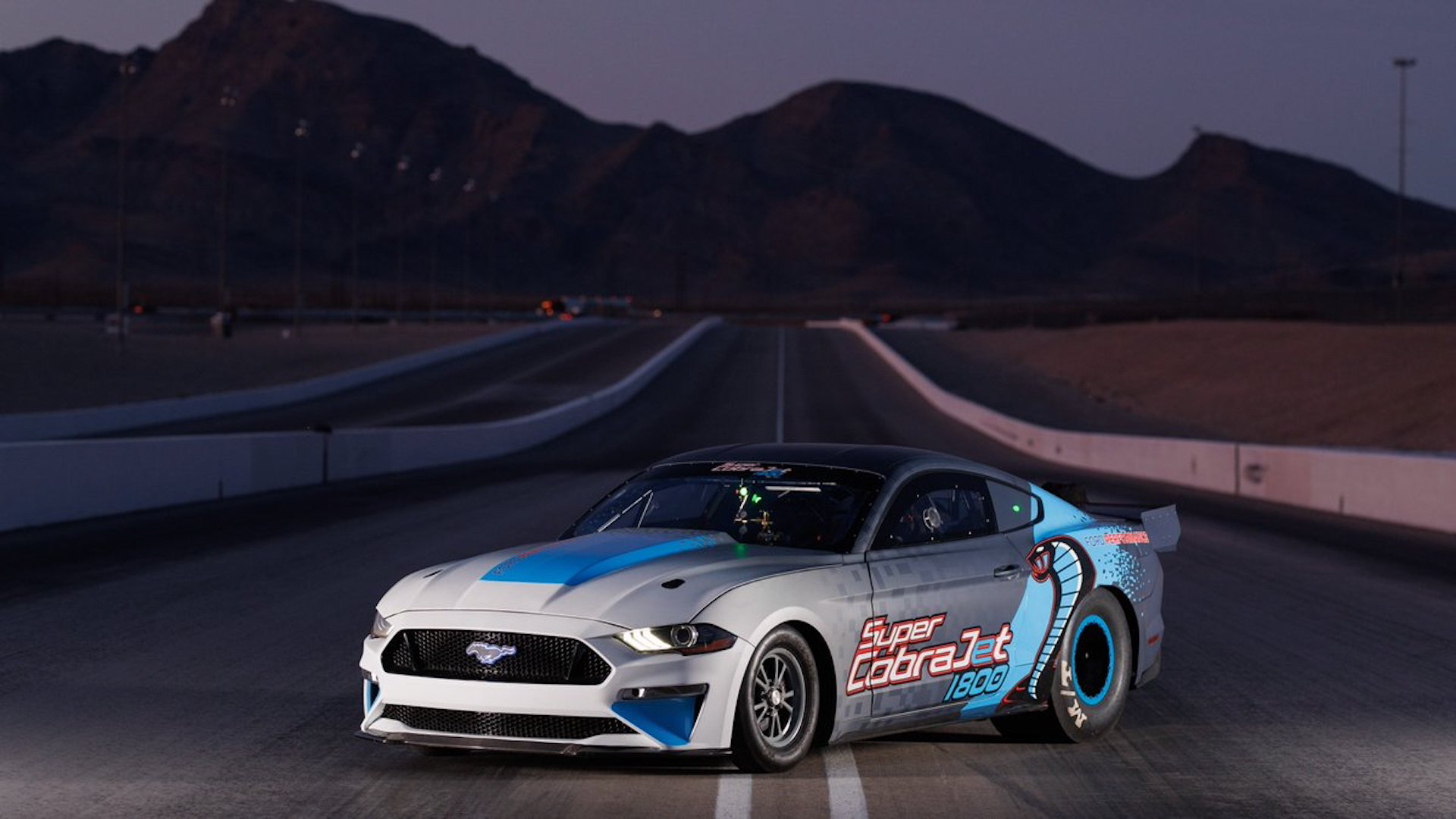Ford provided some light relief from the doom and gloom of COVID-obsessed 2020 with the Mustang Cobra Jet 1400, an electric drag strip weapon that could storm down a quarter mile in just 8.128 seconds, by which time it had hit almost 172 mph (277 km/h). Now Ford is back with even more electric horses and it wants to take a big bite out of that time.
The new car is called the Mustang Super Cobra Jet 1800, and you can probably already guess from the name that its dual-motor drivetrain produces a solid 1,800 hp (1,825 PS), along with an unspecified amount of torque that we can assume far exceeds the 1,100 lb-ft (1,491 Nm) produced by its predecessor.
Although the Mustang is an EV, it’s a classic-shape pony car, and not based on the electric Mustang Mach-E. It’s also a proper steel car with a full unibody shell, not some carbon-fiber lookalike draped over a lightweight spaceframe chassis, but it’s a one-off and definitely not for road use. The other thing to know is that while the 1800 has two individual motors, it runs its power to the rear wheels only.
Related: Ford’s Electric Mustang Cobra Jet 1400 Is A Beast, Clocks Record 8.128 Sec 1/4 Mile Run

Much like the original Super Cobra Jet Mustangs of the late 1960s were Cobra Jet models fitted with equipment like an oil cooler, steep rear-axle ratio and stronger engine components to make them quicker on the strip, so the 2023 car is an upgrade on the Cobra Jet 1400 of a few years back.
Ford is slightly vague about exactly what’s changed, but claims upgrades to the chassis, powertrain and electronic control systems, including a new Liberty transmission, larger Mickey Thompson drag radials and a lighter battery that contributes to a reduction of “hundreds of pounds” of weight versus the original 1400 configuration.
The Cobra Jet 1400’s 8.128-second quarter-mile time still stands as a record for a full-bodied EV, but Ford hopes to beat that at an unnamed NHRA (National Hot Rod Association) event later this year, and set 0-60 mph (0-96 km/h) and two-wheel drive 0-60 mph records for electric cars in the process.











